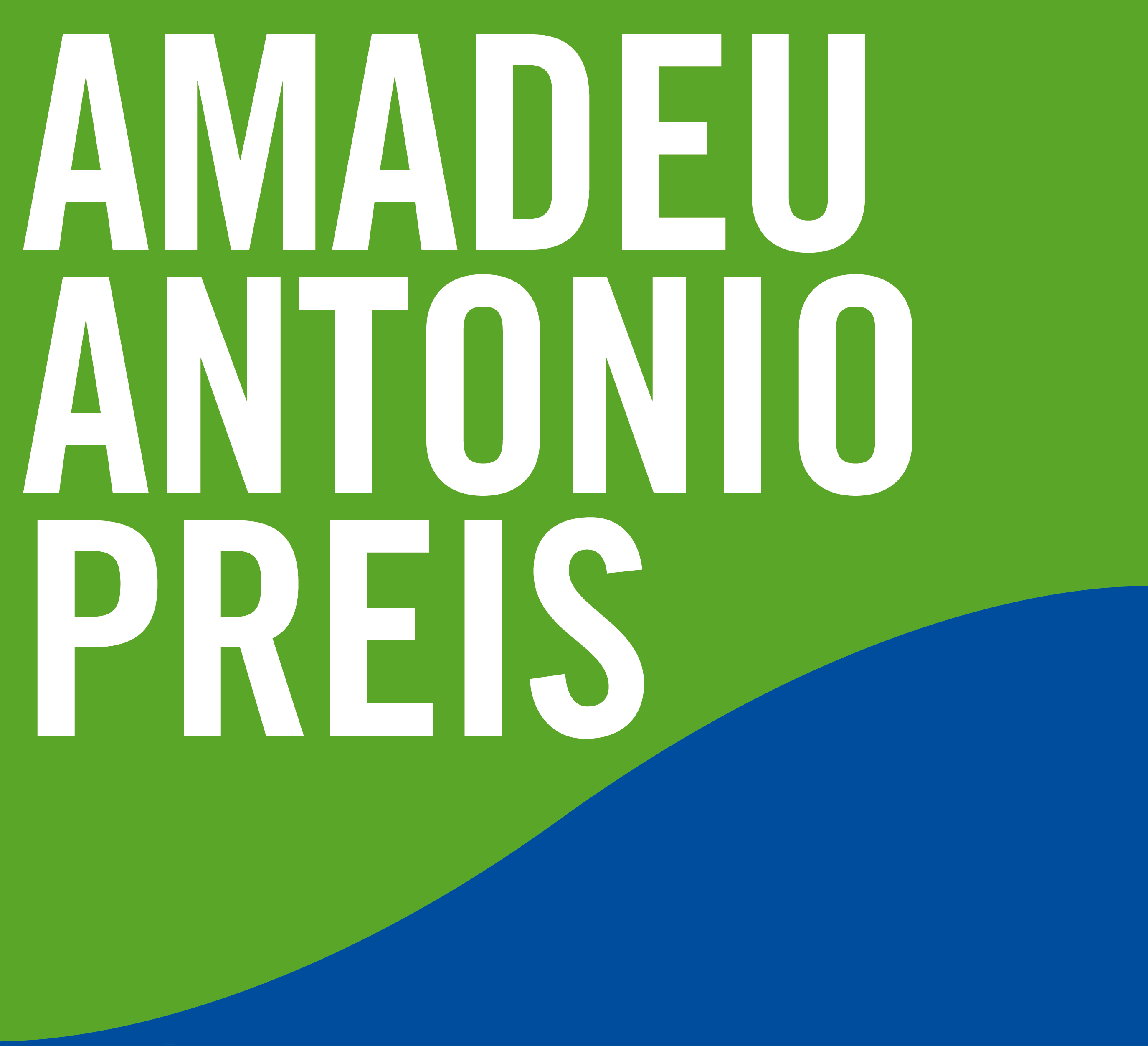Amadeu Antonio Prize
Amadeu Antonio Award

First awarded in 2015 on the occasion of the 25th anniversary of Amadeu Antonio's death, the Amadeu Antonio Award honors artists and groups every two years in the fields of visual arts, literature, theater, and music. It recognizes works that address racism and other forms of discrimination, and that advocate for human rights and diversity. The prize commemorates Amadeu Antonio, his violent death, and the many other victims of racist and far-right violence in Germany.
The Amadeu Antonio Prize is awarded by the City of Eberswalde and the Amadeu Antonio Foundation. Our rotating panel of experts nominates up to ten submissions. The award ceremony took place on November 18th 2025, in Eberswalde. The next call for entries will take place in 2027.

Amadeu Antonio Award 2025
The Amadeu Antonio Prize is organized and awarded by the Amadeu Antonio Foundation and the City of Eberswalde. On the occasion of the 35th anniversary of Amadeu Antonio’s death, projects that address racism and advocate for human rights and diversity were honored in Eberswalde on November 18, 2025. A jury selected the winner of the main prize, which is endowed with €3,000, as well as two additional prizes of €1,000 each.
In 2025, the Amadeu Antonio Award was conceptually restructured: Previously recognizing artists and their work dealing with racism, the award now broadens its scope. It honors projects that engage with racism through artistic or socio-cultural means — particularly at the intersection of political and cultural education. New this year is a specific focus on projects whose primary impact is in Eastern Germany, outside of major cities.
Whether it’s theater projects where young people bring their experiences with racism to the stage, or a party series self-organized by migrants that actively resists the exclusion of people affected by racism from public spaces — the award highlights how diverse and creative anti-racist engagement can be.
Participation
Who can apply for the Amadeu Antonio Award?
- The award is open to artists, individuals, and initiatives based in Eastern Germany who engage with racism through artistic or sociocultural means – particularly at the intersection of political and cultural education. The focus is on anti-racist engagement outside of major urban centers.
- Individuals and groups can apply with one of their projects or works.
- Submitted works and projects should be no older than 2 years and must be completed at the time of application.
- Applications in German or English are welcome.
Fictional examples of artistic work/sociocultural engagement:
- A theater project in which young people affected by racism creatively address and present their life realities on stage.
- An intercultural choir that also educates about structural racism during its performances.
- A party series founded and self-organized by migrants, specifically combating the exclusion of racialized people from public spaces.
How do I apply for the Amadeu Antonio Award?
- The call for applications was open from September 10th to October 10th 2025
- Individuals and initiatives can apply themselves or nominate others.
- Applications via email or post cannot be considered.
- A jury will decide on the winners.
- The award ceremony will take place on November 18, 2025, at the Amadeu Antonio Civic Education Center in Eberswalde, with the mayor of the City of Eberswalde.
Not sure if your project fits the Amadeu Antonio Award?
- No problem – just apply! We have intentionally made the application process low-threshold. Our jury will review whether the criteria are met.
We're looking forward to your submission!
The Criteria
Engagement with Racism
- The project or initiative explicitly, critically, and thoughtfully addresses racism.
- The work highlights structural, institutional, or societal forms of racism, particularly in the context of Eastern Germany.
- The initiative ensures that there are no barriers to diverse and participatory work regarding racism, antisemitism, and other forms of group-based discrimination.
- There must be a clear, democracy-promoting commitment visible in the project.
Cultural or Political Education
- The contributions of the initiatives or individuals strengthen political or cultural education regarding racism. They provide knowledge, empower people affected by racism, and stimulate reflection on discrimination and societal power structures.
Focus on Eastern Germany
- The project specifically addresses the realities, challenges, and perspectives of Eastern Germany.
- The applicant's place of residence or the focus of their work must be in Eastern Germany.
Jury
This year's jury consists of:
- Doreen Denstädt
- Fatuma Musa Afrah
- Jone Munjunga
- Mariia Kryvokhyzhyna
- Patrice Poutrus
- Rafid Kabir
- Tahera Ameer